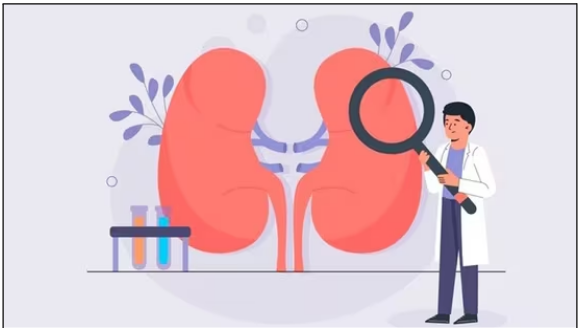News Excerpt:
A study has revealed a major advance in the identification and tracking of renal illnesses linked to nephrotic syndrome. The findings of the study were published in the New England Journal of Medicine and presented at the 61st ERA Congress in Stockholm, Sweden.

|
What is Nephrotic Syndrome?
|
Key Points of the Study:
- The study discovered that anti-nephrin autoantibodies serve as a reliable biomarker for monitoring the progression of renal illnesses linked to nephrotic syndrome.
- It employed a hybrid methodology combining immunoprecipitation with enzyme-linked immunosorbent assay (ELISA) to detect anti-nephrin autoantibodies accurately.
- Anti-nephrin autoantibodies were prevalent in 69% of adults with minimal change disease (MCD) and 90% of children with idiopathic nephrotic syndrome (INS) who had not received immunosuppressive treatment.
- The levels of these autoantibodies correlated with disease activity, suggesting their potential as a biomarker for monitoring disease progression.
- Immunizing mice with laboratory-made nephrin protein induced a condition similar to MCD, providing insights into the involvement of anti-nephrin antibodies in podocyte malfunction and nephrotic syndrome.
- Unlike other models requiring multiple immunizations, this model triggered rapid disease manifestation with just a single immunization, even at low antibody concentrations.


